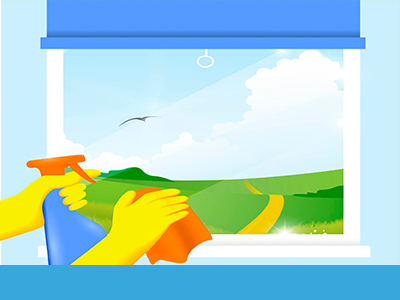It’s almost unimaginable to think of the modern workplace without the impact of technology in all its various formats. Fortunately, the myriad of new technologies available is having a measurable impact on something which has become a hot topic of late – ‘Happiness Levels’.
From smart devices, to our health and our need to stay connected, technology now plays a pivotal role in being happy at work. And not to mention the fact that it leads to lower staff turnover, less absence due to sickness and a significant increase in business productivity.
Smart Devices (but don’t forget the work/life balance)
 An increased flexibility in our working behaviours is undoubtedly one of the largest benefits of having unlimited access to various smartphones and tablets. Ideally, there would be no need to work outside of working hours however as we all know, there’s sometimes no avoiding it.
An increased flexibility in our working behaviours is undoubtedly one of the largest benefits of having unlimited access to various smartphones and tablets. Ideally, there would be no need to work outside of working hours however as we all know, there’s sometimes no avoiding it.
Mike Volpe from Hubspot put it best when he said:
“Tools like Dropbox, Google Docs, GoToMeeting and smartphones have made it seamless for people to work from anywhere, at any time and companies should be embracing this shift by evaluating employees on the results they produce, not the number of days they are in the office”.
And he should know a thing or two about knowing what motivates staff, as his company have had a successful unlimited holiday policy in place for many years now.
Whilst there is definitely a bedding in period (who can honestly say they’ve never fallen into the pattern of going straight home from work, to then work into the small hours?) the latest smart technology significantly helps increase the options of where and when workers decide to work.
The same technology also increases the potential of remote working for staff; where we see some of its biggest benefits, such as relieving the stress of commuting, increasing staff productivity and helping with an increased work/life balance. Having the option of being able to carry out arduous life admin during the week rather than leaving it to the weekend is also a big benefit for employees who work remotely.
A recent report on SME productivity, carried out by Albion Ventures, revealed that 42% of SMEs believe that “investment in fixed line broadband would deliver the biggest benefits [to productivity]”. It’s clear that the government has a role to play in facilitating the use of technology in the workplace and fortunately, with the launch of recent initiatives such as SuperConnected Cities scheme (where organisations were given £3k towards the installation of superfast fibre broadband), they appear to be on board.
However, it is very important to establish clear boundaries and a realistic work/life balance with staff and clients so that calls and emails aren’t always expected to be answered outside of working hours. This means that time home on the train could be put to better use, but if you’re checking emails in bed every night that’s when issues could start to arise. Especially as this will increase the amount of screen time before bed, which will of course impact the quality of sleep.
Sleep, Health, Fitness and all the rest
 Inevitably, a good night’s sleep leads to a much more productive, satisfying, less stressful and happier day. However there is much debate around the use of sleep technology, when considered in a business context. Should it be acceptable for employers to ask staff to use such technology and then give them access to the data? Do you really want your boss knowing how much sleep you get each night? We would say no, but we would suggest privately using some of the latest sleep apps such as Fitbit to help keep an eye on things such as sleep quality.
Inevitably, a good night’s sleep leads to a much more productive, satisfying, less stressful and happier day. However there is much debate around the use of sleep technology, when considered in a business context. Should it be acceptable for employers to ask staff to use such technology and then give them access to the data? Do you really want your boss knowing how much sleep you get each night? We would say no, but we would suggest privately using some of the latest sleep apps such as Fitbit to help keep an eye on things such as sleep quality.
With the benefits of a healthier lifestyle well documented (including having one of the largest impacts on happiness at work), the market for the latest wearable electronic devices for fitness is heating up. Gartner produced some research last year which suggested that “smart garment shipments are forecast to grow from 0.1 million units in 2014 to 26 million units in 2016”. And they have also said that around 2,000 companies offered health wearables to staff in 2013, but this number jumped to around 10,000 in 2014. Again, whilst these are great from a personal point of view, we’re not really sure we would want our bosses knowing how much (or little) exercise we were carrying out on a daily basis. Will that promotion go to your colleague because they spend their weekends taking part in sport rather being a spectator?
No-one Likes Admin
Now seems like the best place to give a mention to the reduced admin in our daily lives thanks to the various types of software now available such as Enterprise Resource Planning (ERP) or Customer Relationship Management (CRM). Anyone who’s been in sales ‘pre tech’ knows the pain of manually having to organise a pipeline of potential sales contacts and prospects the old fashioned way. It’s not easy and it’s definitely not fun. There’s therefore no doubting the increased levels of happiness of those sales staff that previously had to spend their time poring over order books and ledgers to spot trends (Thanks, Firefish!).
Staying Connected – The More the Merrier!
Some love being social online and some well, don’t. However various studies are now surfacing which suggest that we are hardwired with a need for relationships:
“Close relationships and social connections keep you happy and healthy. Basically, humans are wired for personal connections.” The findings are unequivocal: Online connection decreases depression, reduces loneliness, and increases levels of perceived social support.”
As well as being able to make professional contacts, providing staff with somewhat of a safety net should their current role not work out (which reduces stress levels), other profiles allow staff to get a ‘real’ sense of their co-workers lives away from the office (hint: was your weekend really ‘a quiet one’?). This can help to develop a real rapport and camaraderie between colleagues, far more easily than it would be without this online insight into people’s personal lives.
Instant messaging and sharing services such as Skype and Slack are also being seen to not only improve productivity and save time (again, when used appropriately) but increase happiness levels in the workplace. As well as keeping colleagues connected and helping to build a sense of team spirit, they help to prevent a flooded email inbox and a constant string of meetings and phone calls.
And whilst it’s no substitute for personal one to one time, for managers, if there’s no possibility for another option, a quick online chat gives them some form of ongoing dialogue with their team members.
However with all that being said, if you want a happy workforce the answer might just be to give them some food. Who knew?
David Munro
David Munro is the joint owner of Glasgow-based business telecoms & IT provider, Abica.




